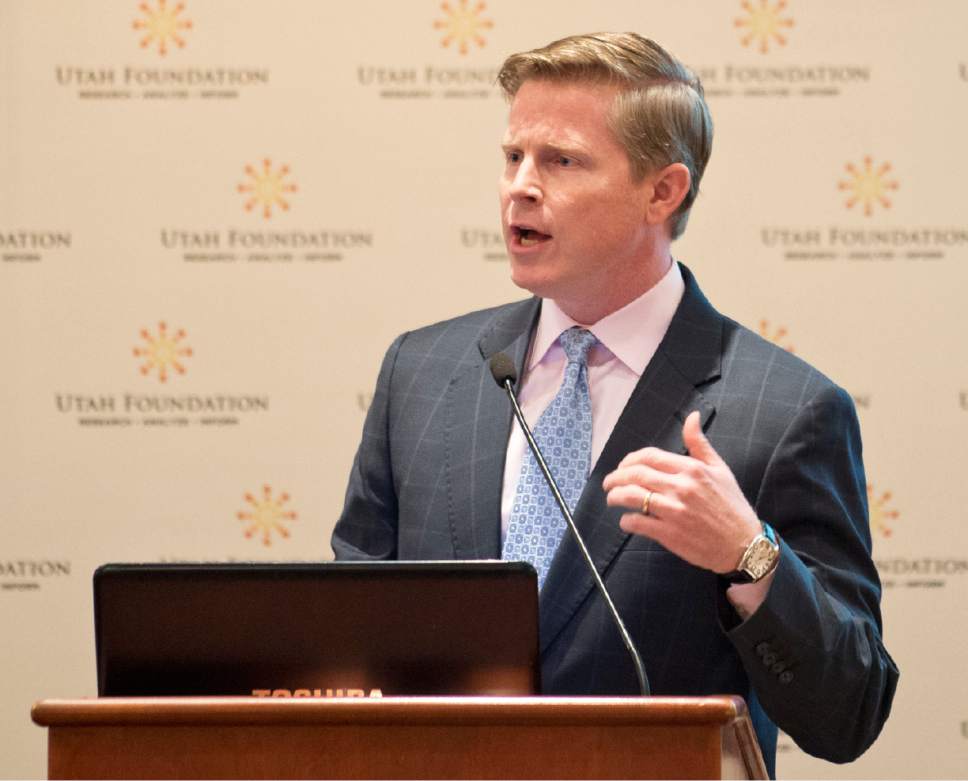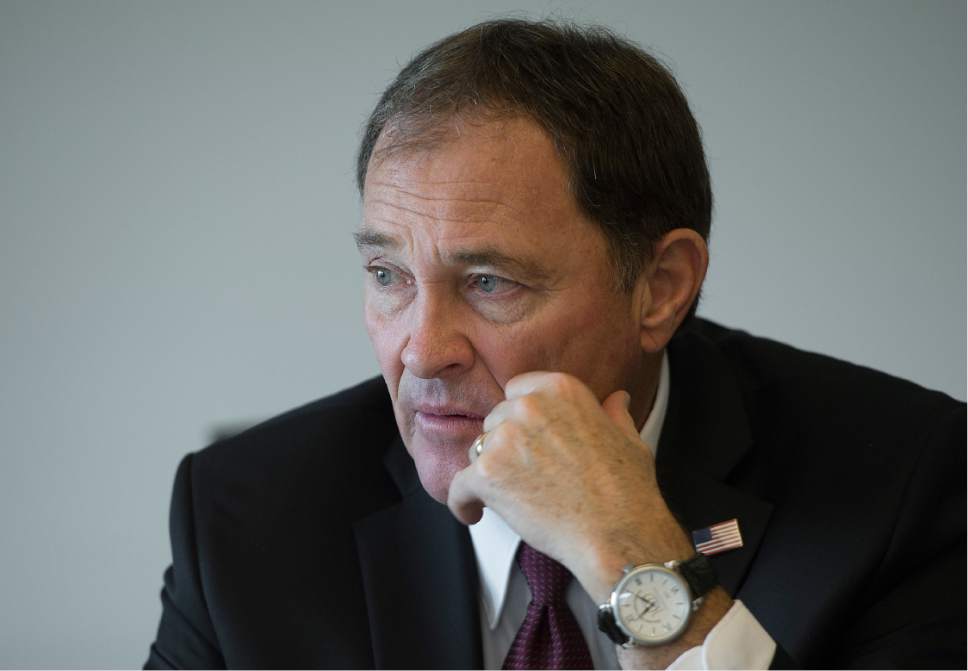This is an archived article that was published on sltrib.com in 2016, and information in the article may be outdated. It is provided only for personal research purposes and may not be reprinted.
Gov. Gary Herbert — among several other politicians — is criticizing a decision by the Utah Transit Authority board to close its committee meetings to the public.
"Of course these meetings should be open to the public," Herbert said Wednesday. "Sunshine and public input promotes accountability and is critical to ensuring that a taxpayer-funded agency like UTA is responsive to Utah citizens."
While Herbert said that some other recent changes by UTA are encouraging, "This policy change falls short of the kind of transparency that the public has the right to expect."
The governor appoints one of the 15 UTA Board members. Herbert's appointee was UTA Board Chairman H. David Burton.
Asked for a response to the governor's criticism, UTA spokesman Remi Barron said in an email statement Wednesday: "The previous committee meetings, while open, were rarely attended by the public, and public comment was not taken at those meetings. The changes being made will redirect all decision making to the full board, and there will be new opportunities for public comment on board proposals in advance of the meeting as well as during the board meeting."
Herbert's statement came a day after The Tribune discovered and reported that the UTA Board will now move behind closed doors all of its committee meetings, where members generally have worked through issues to the point that final approval by the full board usually occurs without debate.
That comes in the midst of a reform campaign that Burton has said aims to improve transparency and build public trust, and includes allowing more public comment at full board meetings.
The Tribune learned of the change when it asked why UTA had not posted agendas for committee meetings previously scheduled for Wednesday.
Barron replied that a change to move all final votes on issues to the full board meant that "the previous committee meetings will now become informal work sessions and are not required to be open meetings."
Jeff Hunt, a Salt Lake City media and First Amendment attorney, said UTA's action violates the Utah Open and Public Meetings Act.
Even if committees cast no final votes, Hunt said, "Advisory bodies are subject to the Open Meetings Act. It's right in the definition of what constitutes a public body."
He added the reasoning behind that is "the public deserves to hear the full discussion and debate on issues of public import and not just the vote on those issues once they reach the full board."
The Tribune attempted to protest the closed meetings in person on Wednesday, but a receptionist at UTA headquarters denied a reporter entry, saying she knew of no such meetings being held.
When the reporter later phoned a UTA Board member seeking comment, a secretary at his full-time workplace said he was away attending a UTA committee meeting. The Tribune sent a written protest to UTA about the meetings.
The situation attracted comment by a few politicians besides Herbert.
His GOP opponent for governor, Jonathan Johnson, tweeted that for an entity with a "history of scandal & waste" and subsidized by taxpayer money, UTA "should err on the side of transparency."
Johnson previously called for a change to elect UTA Board members, instead of having them appointed by a wide range of different state and local government officials.
State Sen. Jim Dabakis, D-Salt Lake City, tweeted that it is time for the UTA Board to "resign en masse." He added in a follow-up tweet that the situation shows "arrogance on steroids."
Catherine Kanter, a Democratic candidate for an at-large Salt Lake County Council seat, challenged UTA to reverse its decision, and said, "It's unfortunate that UTA would take this step backward in transparency."
She said that as a member of the Salt Lake County Mountainous Planning District Commission, "I know firsthand how important issues often get discussed at work session meetings. To exclude the public from such discussions — even if final decisions will be made at the open full board meeting — is counterproductive to UTA's stated goal of improving transparency and building public trust."
She added, "It's incumbent that elected officials in our region speak up when issues of public trust are at stake."





